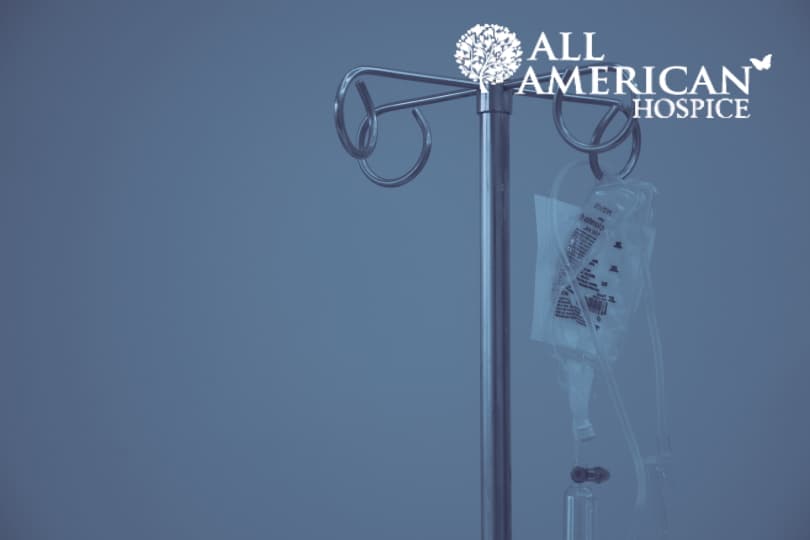Table of Contents

Considering your options for medical treatment towards the end of life can be a challenging thought process. Plus, there may be a plethora of weighty choices to make. How about a home death or a hospital one? To what extent would you, or the person you’re in charge of, like to undergo painful medical operations in the name of increasing your lifespan?
Despite the difficulty, there are many benefits to planning for the final days. If you’re ever in a life-or-death situation, one of the most crucial choices you’ll have to make is whether or not you want to be revived.
Medical staff are instructed not to perform CPR or other life-sustaining procedures after a DNR or DNI order has been given. This article explains what a DNI is and why people institute such regulations.
What is DNI in Medical Terms?
Patients can express their desire to avoid intubation in the event of a medical emergency by signing a legal document called a Do Not Intubate (DNI). Patients with orders of a DNI meaning medical help like chest compressions and cardiac medications will be provided, but no intubation will take place.
Medical intubation is the insertion of a thin, flexible plastic tube into the trachea (windpipe) through the mouth or nose. A ventilator machine, which is typically attached to this tube, forces oxygen into the lungs and pushes the CO2 out, in short, breathing for you.
Laws Regarding DNI
It is crucial to know the difference between medical abbreviations for DNR and DNI. If a patient has a Do-Not-Resuscitate order, no life-sustaining measures, such as chest compressions, cardiac medications, or a breathing tube, will be taken. The key difference between a DNI and a DNR definition is that the former permits medical personnel to provide cardiac medications and perform chest compressions.
Just When Do I Need a DNI?
Requests for DNIs are most common in cases when the patient is terminally ill or has a terminal illness that cannot be cured. When the goal of treatment shifts from curing a patient’s ailment to guaranteeing their comfort, DNIs are often the best option. Sometimes a patient will choose to prearrange a DNI, which will be documented in their medical record. Having a life-threatening disease is usually the root cause of this.
The Decision to Issue a Do-Not-Intubate Order
If a loved one is terminally ill, it may be difficult to decide whether to pursue a DNI on their behalf. A DNI, however, can be revoked at any moment, and your hospice care team can check in from time to time to ensure that the patient still wants the order in place. Do-Not-Intubate Orders apply only when a patient has no pulse or is not breathing, but they do not limit the provision of any additional care that may be clinically indicated. DNR and DNI orders can be put in place without the necessity for a formal advance directive or living will. In any case, a living will must be formally decreed by a court of law.
Do Patients Always Have a Choice?
Of course not. There are times when a patient would benefit from a DNI but lacks the capacity to make such a decision independently. It’s understandable to feel hesitant or inhibited about making a decision regarding a loved one if you’re put in such a precarious position. If you want to make the best possible choice for your loved one, you should talk to the hospice staff first. Choosing a DNI for a loved one who is at risk of cardiac arrest or respiratory arrest may be the most compassionate course of action.
Does a DNI Present Any Dangers?
If your loved one does not want to be revived in any circumstance, they may choose to do so by executing a DNR instead of a DNI. Patients typically opt for this choice if they want to avoid intubation and the potential risks that come with it. Though it happens seldom, intubation can bring down the quality of life by possibly adding life-threatening complications. Individuals with terminal illnesses may face heart attacks, lung infections, strokes, and momentary mental confusion once intubated.
When Deciding on a DNI, What Factors Should I Consider?
The first step in making the decision to intubate is talking to your loved one and getting their input. The next step is to consult with the hospice medical staff to get their take on things. The majority of the time, a DNI is sought when the patient’s condition has deteriorated to the point where they are in imminent danger of passing away.
It’s crucial to have faith that you’re making the best decision possible for you and your loved one if you’re the one making the call. No matter how you feel about your family member’s decision, once they’ve established a DNI order for themselves, you cannot rescind it. In order to feel more at ease and accept your loved one’s decision, talking to them about it can help.
Get Expert Guidance
Making this choice for yourself or a loved one can be mentally exhausting. However, speaking to professionals will set your mind at ease. Having comfortable end-of-life days is no longer a distant dream. Reach out to one of our experts at All American Hospice and ask us, what does DNI mean? We will be glad to explain and help you get started.

 215-322-5256
215-322-5256
Comments are closed.